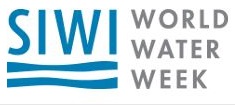Engaging around Equity at Stockholm World Water Week
August 30, 2016
By Hanna Woodburn
Stockholm World Water Week (SWWW) is one of my favorite conferences each year, because it tends to create cohesion between many disparate conversations that have taken place throughout the rest of the year. Through sessions, working group meetings, and impromptu conversations over coffee, questions are answered, assumptions challenged, and further connections established. This year has been no exception.
impromptu conversations over coffee, questions are answered, assumptions challenged, and further connections established. This year has been no exception.
Given the call to deliver sustainable water, sanitation, and hygiene (WASH) to everyone, everywhere, I have been reflecting on WASH from a human rights perspective. As a result, my perspective has been informed in a few different ways as a result of attending SWWW.
One of my favorite sessions thus far has been on failures in the WASH sector, entitled WASHoholic Anonymous. During this session, presenters acknowledged failures and gleaned resulting lessons. In small groups, participants discussed changes that we need to make within the sector, as well as incentives for improving our work. This exercise resonated with me, prodding me to think about the gaps that we are not addressing. For instance, in another session, participants discussed challenges that students may face when attempting to access WASH services in schools. Many examples were given, but no one—myself included—mentioned any barriers that related to students with disabilities. In identifying this failure, I have recommitted myself to focusing more on equity within my own deliverables.
In regards to equity, I was also reminded about the importance of disaggregated data. As a result of the Sustainable Development Goals, or perhaps due to a natural evolution within the sector, an emphasis on indicators is prevalent in many sessions. The adage is true: What gets measured gets done. And, therefore, we must ensure that we are measuring the right things. Frequently, access to WASH is measured at the household level, but doing so fails to consider that inequities in access may exist within the household. Women are often burdened—even physically so—as being the duty-bearers for WASH in the household. And yet, they tend to have less access to sanitation due to stigma associated with menstruation. Household members who are sick, elderly, or mobility-impaired face additional physical barriers to utilizing WASH services. We cannot assume that because a household has access that it is equitable. Indeed, ensuring quality service for all requires identifying inequities that exist.
WASH service delivery exists within systems that must function properly. In a WASH in Schools session, working group members discussed the fact that in properly functioning systems individuals should be able to know who to hold accountable for malfunctioning, dirty, or missing WASH services. For instance, at this conference center, there is someone to complain to about a lack of toilet paper. This act of holding someone accountable requires agency, confidence that speaking up will result in a specific and desirable change, and a belief that one’s voice matters. This is a significant act, especially for those who are vulnerable. Addressing inequalities in WASH means not only building feedback mechanisms, but also ensuring that people have the ability to use them. This is a tall order, but is certainly worth it.
These are just a few of my thoughts from the conversations I’ve been privileged to be a part of this week. I look forward to sharing more with you over the next few days.